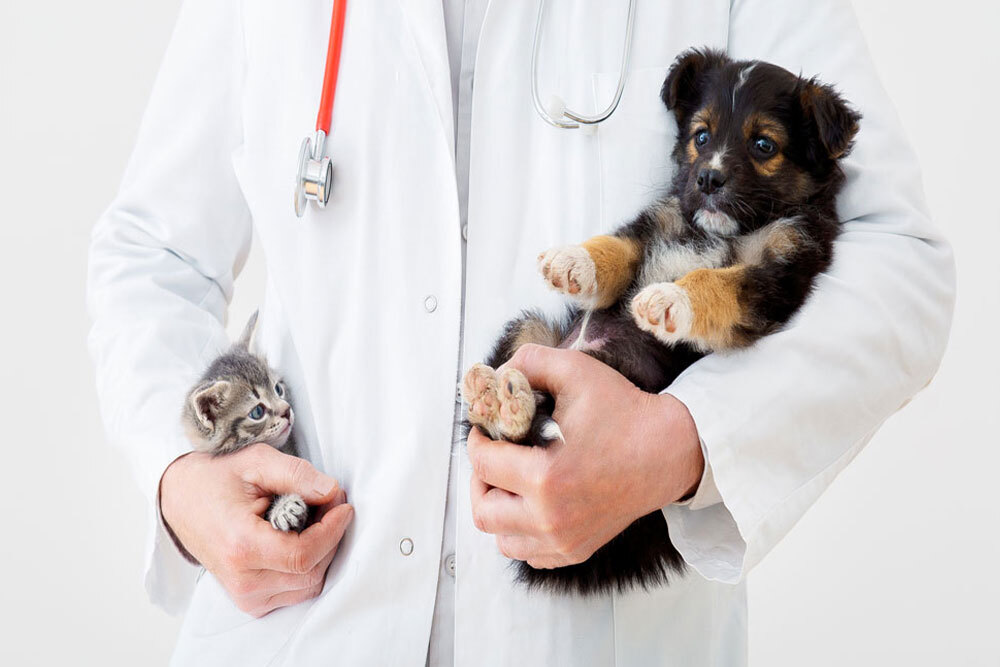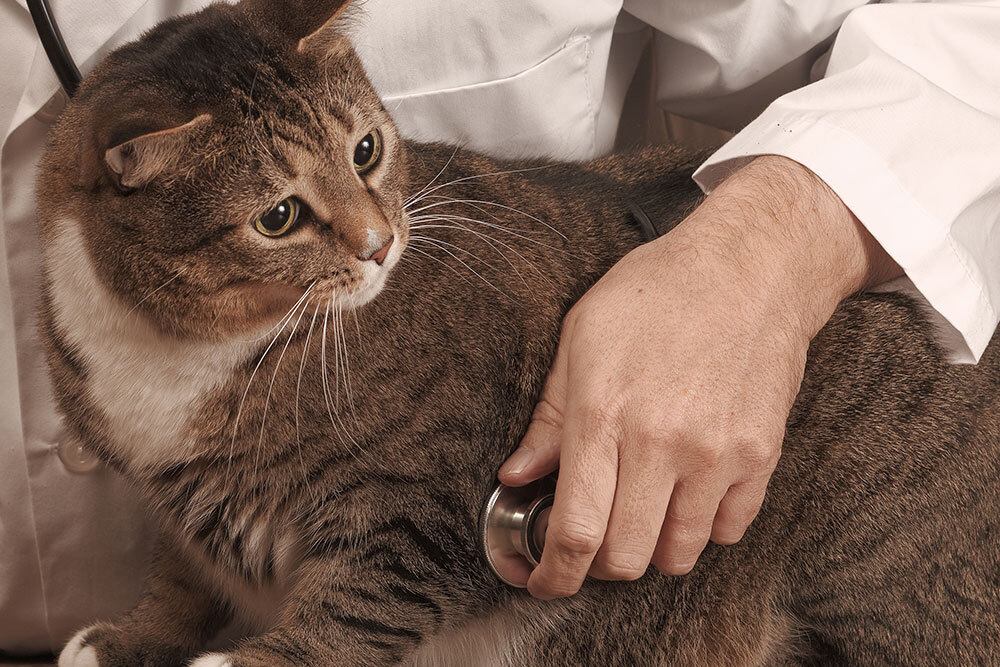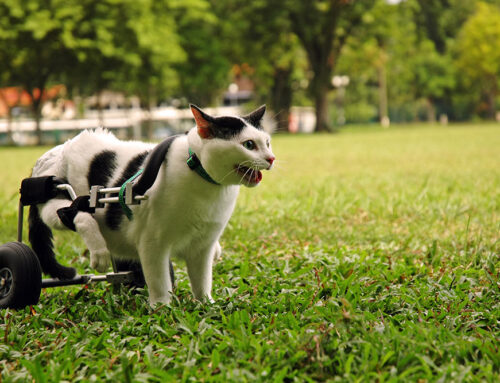New Pet Parent? What to Do When Your Puppy or Kitten Gets Hurt
Bringing home a new puppy or kitten is an exciting adventure- equal parts joy, chaos, and cuteness overload. Along with the snuggles and playtime, though, comes a new responsibility: knowing what to do if your little one faces a medical emergency. At Cupertino Animal Hospital, we want you to feel informed, confident, and ready for anything. Here’s what you should know about the most common emergencies affecting puppies and kittens, and how to respond.
Why Puppies and Kittens Need Extra Attention
Young pets are still developing inside and out. Their immune systems are immature, they dehydrate more quickly, and their small size makes them more vulnerable to illness and injury. Emergencies can escalate within hours. If you’ve ever wondered whether you’re overreacting to a symptom, chances are it’s worth getting checked. With puppies and kittens, “better safe than sorry” is a rule to live by.
Spotting the Signs: What’s Normal, What’s Not
Here are symptoms that should always prompt a call to your veterinarian:
Respiratory Distress
Open-mouth breathing, wheezing, labored breathing, or blue-tinged gums are all red flags. Whether caused by infection, a congenital issue, or a blockage, breathing problems are emergencies. Keep your pet calm and transport them to the clinic immediately. Treatment may include oxygen or airway clearance.
Vomiting and Diarrhea
Persistent vomiting or diarrhea- especially if there’s blood- can lead to dehydration very quickly. In puppies, parvovirus is a serious concern. Parasites like roundworms, hookworms, or coccidia are also common culprits in young pets. Left untreated, both can become life-threatening. Prompt care with fluids, deworming, and anti-nausea medications is often life-saving.
Seizures or Incoordination
Convulsions, tremors, or stumbling may signal toxins, trauma, or neurological disease. Even short seizures require evaluation. Managing seizures often involves medication and lifestyle adjustments.
Trauma (Falls, Bites, or Accidents)
Puppies and kittens are playful but not always coordinated. Common accidents include falling from furniture, getting stepped on, being shut in doors, or escaping outside and being hit by a car. Bites from other pets- especially at dog parks- can also cause serious wounds or infections. Signs include limping, swelling, bleeding, or pale gums. Keep your pet calm, control bleeding, and call us right away.
Toxin Ingestion
If you suspect your pet has eaten something toxic- medications, cleaning products, chocolate, or certain plants- call ASPCA Poison Control immediately. Symptoms may include vomiting, drooling, tremors, or seizures. Prevention starts with keeping hazards out of reach and pet-proofing your home.
Weakness or Collapse
Sudden lethargy, pale gums, or collapse can stem from hypoglycemia (especially in toy breeds), infection, or heart problems. These require urgent veterinary care.
Urinary Issues
Straining to urinate, vocalizing in pain, or blood in the urine may indicate a blockage or infection. Left untreated, these conditions can quickly damage the kidneys.
Eye Problems
Young pets bump into things and stick their faces where they shouldn’t- potentially harming their eyes. Cloudiness, swelling, discharge, or constant squinting can worsen quickly in young animals. Prompt exams and treatment protect vision.
Behavior Changes
If your normally playful pet is suddenly hiding, withdrawn, or irritable, pain may be the cause. Don’t dismiss these changes.
Refusing to Eat
A puppy or kitten who refuses food for more than a few hours needs to be seen. Young pets are prone to hypoglycemia, and cats especially can’t go without food for long without risking liver complications like hepatic lipidosis.
Other Common Emergencies in Young Pets
- Chewing Hazards: Electric cords can shock or burn curious mouths, while unsafe chews or bones may splinter and cause internal damage. Stick to vet-approved toys.
- “Garbage Gut”: Raiding the trash often leads to vomiting, diarrhea, or toxin exposure from spoiled food. Keep lids secure.
- Parasite Overload: Fleas, ticks, and worms can overwhelm young pets, leading to anemia or severe illness. Regular prevention is key.
- Foreign Objects: Strings, socks, and toy parts are common obstruction risks. Watch for vomiting, straining, or abdominal pain.
Breed-Specific Risks
Some breeds are more prone to emergencies. Brachycephalic dogs (Bulldogs, Pugs) often have airway concerns, while large-breed puppies may face orthopedic injuries or risk of bloat. Knowing your pet’s breed-specific health risks helps you stay proactive.
What to Do Before You Get to the Vet
Every pet household should have a simple first-aid kit on hand:
- Gauze and bandages
- Antiseptic wipes
- Digital thermometer
- Tweezers
- Saline rinse
- Emergency phone numbers (your vet and poison control)
Pet-Proofing and Prevention
At Home
Prevention is always the best medicine. Keep cords, small objects, plants, and medications out of reach. Learn more with these Essential Tips for Pet-Proofing Your Home.
Out in the World
Early socialization is important, but it should be done gradually and safely. Introduce new people, pets, and environments step by step. The AVSAB’s guide to preventive behavioral care is an excellent resource.
Should You Get Pet Insurance?
Short answer: Yes.
Emergencies are stressful enough without worrying about cost. We recommend exploring pet insurance options early. Insurance offers peace of mind and ensures you won’t have to choose between finances and care.
Frequently Asked Questions
How fast should I respond to symptoms?
Immediately. In puppies and kittens, even mild signs can worsen quickly.
Can I give over-the-counter medications?
No. Many human drugs are toxic to pets. Always check with your veterinarian first.
What does normal behavior look like?
Young pets should be curious, playful, and eager to eat. Any sudden change is worth a closer look.
We’re in This Together
At Cupertino Animal Hospital, we understand how overwhelming emergencies can feel. But you don’t have to face them alone. Whether it’s a sudden vomiting episode, an escape gone wrong, or a sudden change in behavior, our team is here to help. Meet our doctor or schedule an appointment today. From first vaccinations to those unexpected emergencies, we’ll be here every step of the way to keep your new companion safe and thriving.
















Leave A Comment